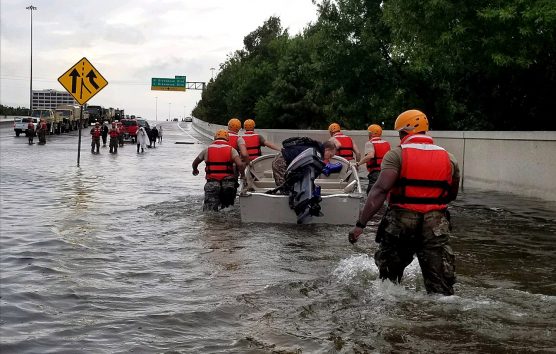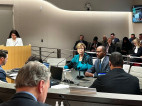SACRAMENTO – California’s Attorney General today issued a consumer alert to warn Californians about sham charities soliciting donations in the aftermath of Hurricane Harvey.
Hurricane Harvey has set a record for rainfall in the continental United States and has devastated parts of Texas and Louisiana.
“Right now, Californians are donating their hard-earned money to help victims of Hurricane Harvey,” Attorney General Xavier Becerra said. “Unfortunately, some are trying to take advantage of this generosity, starting fake charities to line their own pockets. I urge all Californians to follow the tips below to avoid becoming victims of these disgraceful scam artists.
“Hurricane Harvey has wreaked havoc in Texas and Louisiana, and we need to do our best to ensure that every dollar we donate goes directly to those in need,” Becerra said. “I encourage anyone who has been a victim of a charitable giving scam to file a complaint through my office’s website or call 800-952-5225.”
The California Department of Justice has the primary responsibility for supervising charities and the professional fundraisers who solicit on their behalf. Under Government Code, § 12580, the Attorney General may investigate and bring legal actions against charities that misuse charitable assets or engage in fraudulent fundraising practices.
Donation Tips
Check Registration Status
Charities operating in California and telemarketers soliciting donations in California are required to register with the Attorney General’s Registry of Charitable Trusts. They are also required to file annual financial reports. Confirm that the charity is registered and up-to-date with their financial reporting by searching the Attorney General’s Registry of Charitable Trusts at www.oag.ca.gov/charities.
Give to Organizations You Trust
Do your research before giving. Review the charity’s purpose and its financial records, available on the Attorney General’s Registry of Charitable Trusts, and find out how it spends donations. How much is spent directly on the charitable cause? How much goes to overhead and employee compensation? Research charities in your community and support those charities that make a positive impact.
Don’t Be Pressured By Telemarketers and Ask Questions Before Donating
If you receive a call from a telemarketer, ask for the name of the fundraising organization, whether it is registered with the Attorney General’s Office, the name of the charity benefitting from the solicitation, how much of your donation will go to charity and how much to the telemarketer, and the direct telephone number of the charity. Don’t fall for pressure tactics or threats. Remember you have the right to reject the donation appeal and if you feel pressured or threatened, just hang up.
Be Cautious of “Look-Alike” Websites
These fraudulent websites may have a slightly different web address (URL). Similar looking URLs are sometimes purchased to lure in would-be donors. These sites may ask for personal information or install harmful material onto your device.
Watch Out for Similar-Sounding Names and Other Deceptive Tactics
Some organizations use names that closely resemble those of well-established charitable organizations to mislead donors. Be skeptical if someone thanks you for a pledge you never made. Check your records. Remember: current registration status with the Attorney General’s Office does not mean the Attorney General endorses or has approved the activities of the organization.
Be Wary of Social Network Fundraising
If you are planning to donate through a social network solicitation, find out what percentage is going to the charity, whether you will be charged a fee, or if a percentage of your donation will be paid to the platform website.
Protect Your Identity
Never give your social security number or other personal information in response to a charitable solicitation. Never give out credit card information to an organization unfamiliar to you. Some organizations sell or rent their donor lists to other organizations, including organizations that are not charities. Look at the charity’s privacy policy and learn who the charity might share your information with before you provide it.
Like this:
Like Loading...
Related





 Tweet This
Tweet This Facebook
Facebook Digg This
Digg This Bookmark
Bookmark Stumble
Stumble RSS
RSS


























REAL NAMES ONLY: All posters must use their real individual or business name. This applies equally to Twitter account holders who use a nickname.
1 Comment
This is why we do NOT “donate” ! ??
Duh
Nobody has ever donated anything to me for any reason!